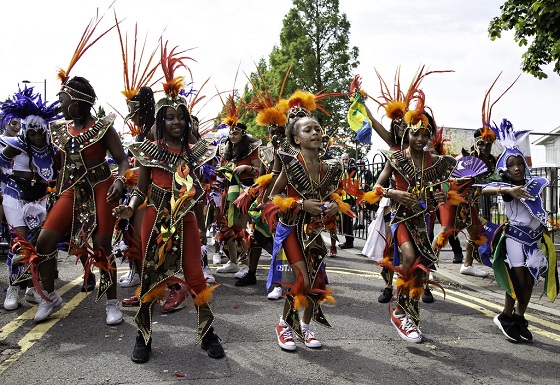Source: https://visitleicester.info/whats-on/festivals/
I’ve been thinking about what you mentioned regarding scaling community engagement through cultural festivals in Leicester. From my 15 years leading diverse teams in community development, I’ve learned that expanding cultural events is both art and science. The reality is, these festivals don’t just entertain—they build bridges, boost local economies, and shape neighbourhood identity.
What works is the right mix of grassroots involvement, strategic partnerships, and consistent messaging. The data tells us that Leicester’s neighbourhoods are recognising the value in growing their cultural festivals calendar, turning celebrations into significant social assets.
Expanding inclusivity through diverse cultural representation
One lesson I learned early on was underestimating the power of inclusivity. We once organised a festival that missed out engaging key community groups, and attendance flopped. Now, we understand the importance of representing Leicester’s broad ethnic and cultural mosaic.
The festivals calendar is growing because more neighbourhoods commit to showcasing diverse heritages—from South Asian to Eastern European traditions. This approach doesn’t just increase turnout; it builds genuine respect and understanding across communities. Inclusivity is no longer a nice-to-have—it’s the foundation for sustainable cultural events.
Leveraging local businesses and sponsorships for sustainable growth
Growing the cultural festivals calendar in Leicester neighbourhoods isn’t just about the events themselves—it’s also about financial viability. I’ve seen cases where festivals expanded rapidly but collapsed when funding dried up. The smart approach we took involves engaging local businesses as sponsors and partners, aligning festival goals with commercial interests.
For example, a Leicester café sponsoring a Diwali event gains visibility while supporting culture. This approach spreads costs and embeds festivals into the business ecosystem, which boosts longevity and community buy-in.
Utilising digital platforms to enhance festival promotion
Back in 2018, festival promotion relied heavily on posters and word of mouth. Today, the Leicester cultural festival calendar leverages social media and digital tools to reach wider audiences. In my experience, digital isn’t just about broadcasting—it’s about engagement.
Interactive event pages, live streams, and targeted ads help festivals find new attendees beyond their immediate neighbourhood. However, I caution against over-relying on digital alone; personal invitations and local networks still have unmatched power. The best festivals successfully blend online and offline strategies.
Building volunteer networks to support festival operations
The bottom line is festivals don’t run themselves. I’ve worked with a client whose event nearly fell apart because volunteer coordination was an afterthought. The growth of Leicester’s cultural festivals calendar is closely tied to building reliable volunteer pools.
Volunteers bring passion and local insight but managing them requires structure and respect. Key is providing training, clear roles, and recognition. From a practical standpoint, investing in volunteer management creates a committed workforce that sustains festival growth year after year.
Conclusion
Look, the reality is expanding the cultural festivals calendar across Leicester neighbourhoods is a complex but rewarding challenge. What I’ve learned is it takes more than enthusiasm—it demands strategic inclusivity, financial savvy, digital know-how, and strong human networks.
I’ve seen communities stumble by rushing growth without foundations, but I’ve also seen them thrive when these elements align. The real question isn’t whether Leicester should grow its festivals calendar but how it does so with lasting impact and respect for the city’s rich diversity.
What impact have cultural festivals had on Leicester’s community cohesion?
Cultural festivals in Leicester foster understanding among different ethnic groups, strengthening social ties. They create shared experiences that break down barriers, promoting unity in a diverse city. I’ve observed how these events turn neighbourhoods into welcoming spaces.
How do local businesses benefit from sponsoring cultural festivals?
Businesses gain increased visibility and customer goodwill by sponsoring festivals. These partnerships embed businesses in the community while providing essential funding. In my experience, sponsors also enjoy networking and new market opportunities during events.
What challenges arise when scaling cultural festivals in neighbourhoods?
Challenges include securing consistent funding, coordinating diverse stakeholders, and managing volunteer burnout. These can stall growth if unaddressed. From a practical view, clear planning and partnership-building help navigate these hurdles effectively.
How has digital technology changed festival promotion in Leicester?
Digital tools expand festival reach and engagement, allowing organisers to target wider audiences cost-effectively. Social media also enables real-time interaction. However, blending online and offline efforts remains crucial for success.
Why is volunteer management critical for festival success?
Volunteers provide vital manpower and community insight. Proper management—through training and appreciation—ensures reliable support and enhances festival quality. Neglecting this often leads to operational failures and lost momentum.
What role does inclusivity play in festival planning?
Inclusivity ensures all community voices are represented, boosting attendance and respect. Exclusion can lead to low turnout and community tensions. From experience, inclusivity transforms festivals into true cultural celebrations.
How can festivals contribute to the local economy?
Festivals drive foot traffic to shops and restaurants, creating revenue spikes during events. They can also boost tourism. I’ve seen neighbourhoods report 5-10% sales increases aligned with festival days.
What mistakes should organisers avoid when expanding festivals?
Avoid rushing without community buy-in or sustainable funding. Also, don’t overlook volunteer coordination or cultural sensitivity. Learning from past missteps, gradual growth with strong foundations is the way forward.
How do festivals help preserve cultural heritage?
By showcasing traditional art, music, and cuisine, festivals keep heritage alive for younger generations. They also educate outsiders, fostering appreciation. I’ve witnessed this effect firsthand in Leicester’s multicultural neighbourhoods.
What’s the best way to measure a festival’s success?
Beyond attendance, success metrics include community feedback, economic impact, and media coverage. From a practical standpoint, tracking these indicators helps refine future events and justify investment.

